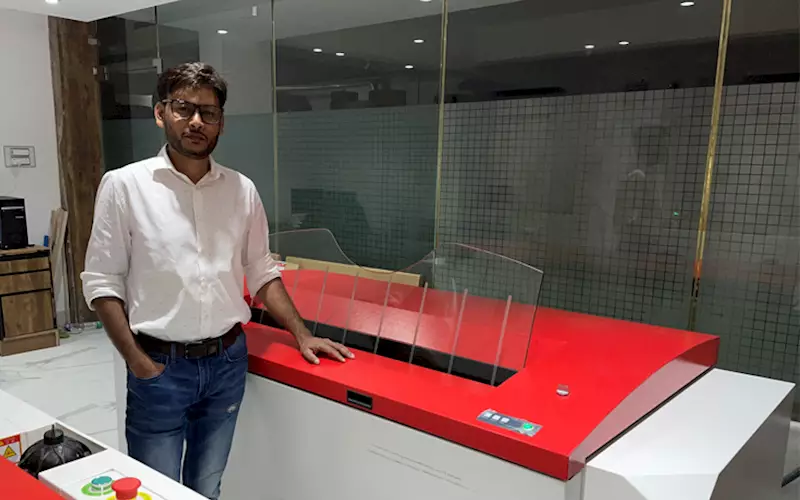Kolkata’s Sufia Print gets ThermoStar T9
Kolkata-based Sufia Print has recently invested in a thermal CTP platesetter ThermoStar T9 from TechNova. The machine features a fully customisable workflow solution. It also helps the printer improve quality and reduce turnaround time.
05 Dec 2022 | By Pooja Mahesh
The company has also installed a Komori L 40 and a plate-baking machine.
Sufia Print was established in 2007 by Fazlul Bari as a DTP centre in Kolkata. It slowly started taking orders for garment boxes and outsourced the jobs. In 2015, it purchased three punching machines and two lamination machines for post-press applications.
Sufia bought its first printing machine, a Komori L40 five-colour with coater, in 2017. Later, in 2019, it added an offline coating unit. Currently, the company has six wet lamination machines, one offline UV coating machine and four manual punching machines in the post-press department.
The company is into making products like printed corrugated boxes, mono cartons, paper bags, tags and inserts. Most of its orders come from garment packaging companies and printing agencies. It also caters to a few corporate houses and also a few publishing houses.
“Today, customers are looking for fast delivery of their orders and we have to ensure that quality is maintained. Therefore, to meet their expectations, printers need to rely on digital plates,” said Fazlul Bari, founder, Sufia Print.
Thus, the company associated with TechNova to get the necessary products that can enable it to meet customer demands. “After getting to know more about the role that thermal technology can play in our jobs and getting positive feedback, we chose to install the ThermoStar T9,” said Bari.
Job secrecy and delay in plate supply were the two issues that the company was facing regularly. As a result, the company decided to opt for the in-house CTP. After gaining an understanding of the ROI of CTPs and their benefits, the company finalised the deal. After the installation of ThermoStar T9, Bari felt that it was user-friendly and operates effortlessly. Additionally, it has also helped the company get instant outputs, maintain job secrecy and not wait for cancelled plates.
With all the processes now happening in-house, there has been a significant improvement in print quality and it has become a value-add for the company. However, the only drawback Bari feels digital printing plates has, is the price. As customers are not aware that digital plates are a key component to get good quality prints, Bari has managed to convince his customers about their efficiency. Now, the company caters to about 90% of their customer base on thermal digital plates and they are satisfied.











 See All
See All